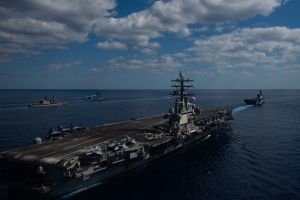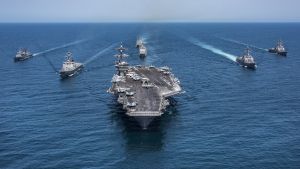In picking fronts that offer the paths of least resistance, trilateral cooperation will maximize the presence of all three countries in ASEAN, maintaining balance in the region and making collective progress toward economic and development goals.
Introduction
Despite its size, economic dynamism, and geographic position, Southeast Asia has received comparatively little attention in US foreign policy. Even as American policy becomes more focused on China, the United States lacks a coordinated strategy to respond to and compete with China’s vast trade and investment in Southeast Asia.
But most ASEAN countries are wary of China’s growing influence and would be open to US involvement as they look to diversify. To take advantage of this opportunity, the United States must supplement its focus on the South China Sea with diplomatic and financial efforts on land. These efforts should offer an alternative to China’s largesse but should not seek a direct competition in hard infrastructure or in terms of dollar amounts invested. Nor should the United States go it alone. Instead, it should seek to cooperate with its allies—Japan and South Korea in particular—to pursue their respective competitive advantages. These include identifying and investing in small- and medium-sized enterprises in ASEAN, developing human capital in the region, and conducting joint maritime cleanup activities in coordination with ASEAN countries.
Creating coordinated activities with Japan and South Korea in Southeast Asia should be the first step for the United States to roll back China’s influence in the region. But these efforts will need to be calibrated to ensure that they focus on the needs of countries in the region and not just engulf the region in the US-China competition.



